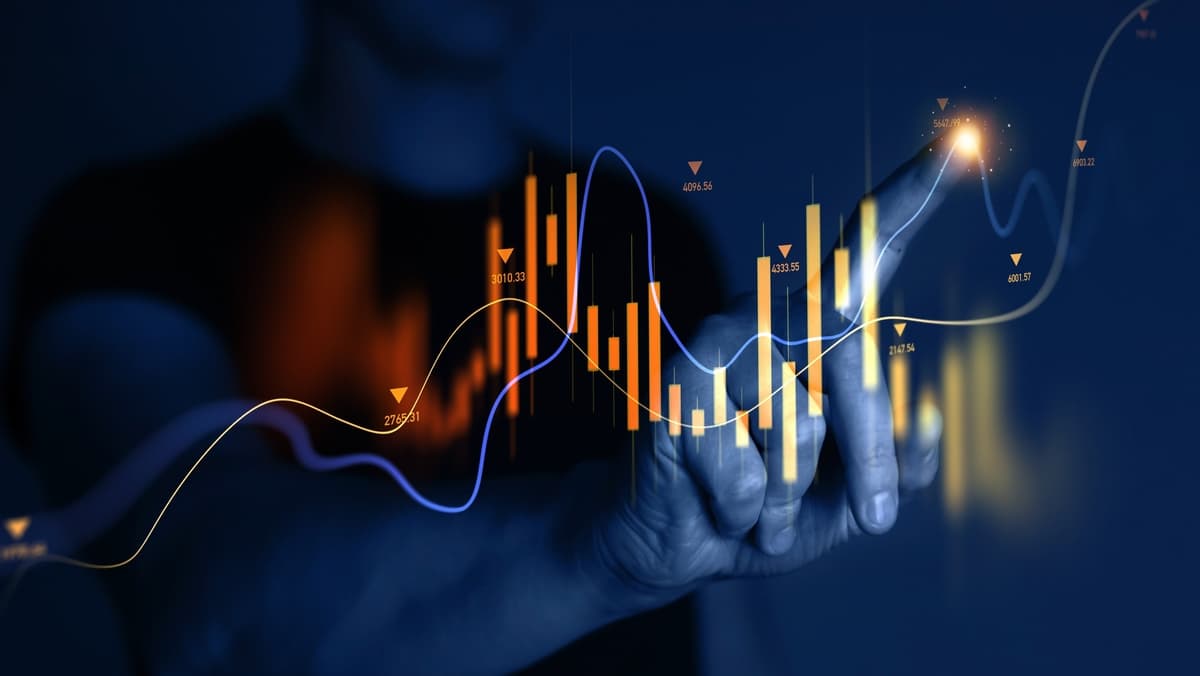
Monday Oct 20 2025 07:58

7 min

The Basics of Trade: Trade enables mutual benefit, specialization, access to resources, economic growth, and risk management, while also fostering cultural exchange.
1. What Is A Trade?
A trade, at its most fundamental level, is an exchange of goods or services. It is the core mechanism by which people, businesses, and nations acquire what they need or want by giving up something else. In the world of finance, the term trade refers specifically to the buying and selling of financial instruments—such as stocks, bonds, currencies, or commodities—on a public market.
The Exchange Process
The concept of a trade is built on the principle of reciprocal transfer. It requires two parties who each possess something the other desires.
In everyday commerce, this might be a customer exchanging currency for a product at a store. In the financial markets, it involves a buyer and a seller agreeing on the value of a security. The buyer takes ownership of the asset, and the seller receives compensation in return. This activity is facilitated by exchanges and brokers, which provide a regulated and organized environment for these transfers to occur efficiently and transparently. A trade finalizes when the ownership of the asset is legally transferred from the seller to the buyer.
Financial Instruments
When discussing trades in a market context, the assets being exchanged are often referred to as financial instruments. These instruments represent a claim to ownership (like stock) or a debt obligation (like a bond).
Stocks represent ownership in a corporation. Buying a stock means acquiring a tiny portion of that company.
Bonds represent a loan made by the buyer to a borrower (like a government or a corporation).
Commodities are raw materials, like gold, oil, or grain, that are traded based on their physical value and future expected value.
Currencies are traded on foreign exchange markets, where one country's money is exchanged for another's.
A trade in any of these instruments is a commitment to an exchange based on the current market valuation.
2. Who Trades?
Trading is conducted by a vast and diverse group of participants, ranging from large, multinational organizations to individual people managing their personal wealth. The key participants can be broadly categorized by their scale and motive for engaging in market activities.
Individuals
Ordinary people participate in trading to manage their personal financial resources. They execute trades through online brokerage platforms, often seeking to build their capital over an extended period. These individuals make their own decisions about which assets to buy or sell, focusing on their personal financial objectives and long-term planning.
Financial Institutions and Corporations
This group consists of major entities whose core business involves finance.
Banks engage in trading to manage risk, facilitate transactions for their clients, and manage their own reserves.
Investment Firms gather and manage large pools of capital from many sources. They trade assets on behalf of their clients, often making very large transactions that move through the market rapidly.
Pension Funds trade to grow the retirement resources for millions of employees. Their trading strategies are often focused on stability and long-term growth to ensure they can meet future obligations.
Non-Financial Corporations also trade, though typically not as their primary business. They might engage in currency trades to hedge against fluctuating exchange rates when conducting international business, or they might buy back their own stock.
Market Makers
Market makers are specialized firms or departments that stand ready to buy or sell a particular security at any moment. Their role is to provide liquidity to the market—that is, they make it easier for others to execute trades quickly. They keep the flow of trading continuous and efficient by constantly quoting both a buying and a selling value for a security. Their continuous activity is essential for a well-functioning exchange.
3. Why Trade? The Importance of Trading
The reasons for trading are multifaceted, but they all generally revolve around the effective management of financial resources and the smooth functioning of global commerce. The importance of trading extends far beyond individual accounts, forming the backbone of economic activity.
Resource Allocation and Capital Formation
Trading is vital because it directs capital to its most productive uses. When people and institutions buy shares of a company, they are providing that company with capital. This infusion of resources allows the business to develop new products, build infrastructure, and expand operations, which in turn fuels economic growth. The ability to trade these assets freely ensures that funds flow to the companies that the market perceives as having the strongest potential for expansion.
Risk Management (Hedging)
A major reason institutions and corporations engage in trading is for hedging, which is the process of offsetting potential future losses. For example, a farming corporation might sell a contract for their expected grain harvest at a predetermined value today. This action locks in a certain selling value, protecting the business from the risk that the grain's value might fall by the time the harvest is ready. Similarly, a multinational company might trade currencies to manage the risk of foreign exchange rate fluctuations affecting the value of its international transactions. This stabilization of costs and revenues is crucial for planning and corporate stability.
Liquidity and Market Efficiency
Frequent and widespread trading ensures that there is always a buyer for a seller, and a seller for a buyer. This is known as liquidity. A highly liquid market is one where assets can be quickly converted to cash without a drastic change in their market value. This reliability encourages participation because people know they can exit their positions when they choose. This continuous exchange makes markets more efficient, meaning that the prevailing values of assets are generally accepted as an accurate reflection of all publicly available information.
Meeting Personal Financial Goals
For individuals, trading is the primary method of growing wealth for future aspirations. Whether it is saving for retirement, a large purchase, or simply increasing one's purchasing power over time, trading provides the means to achieve these long-term financial objectives. People exchange cash for assets with the expectation that those assets will hold or increase in value, allowing their capital to grow in line with the expanding economy.
4. Summary
A trade is the core economic activity of exchanging an asset for compensation, with a focus in finance on the exchange of stocks, bonds, and other instruments. This activity is performed by a wide range of participants, including individuals, large financial institutions, non-financial corporations, and specialized market makers.
The act of trading is crucial for the function of the modern economy because it:
Allocates Capital to businesses for growth and expansion.
Manages Risk through hedging strategies for corporations and institutions.
Provides Liquidity to financial markets, ensuring assets can be readily bought and sold.
Supports Personal Wealth building for long-term objectives.
Ultimately, trading is the dynamic process that allows capital to flow freely, helping individuals meet their financial goals while powering the expansion and stability of the global economic system.

Looking to trade CFDs? Choose Markets.com for a user-friendly platform, competitive spreads, and a wide range of assets. Take control of your trading journey today! Sign up now and unlock the tools and resources you need to succeed in the exciting world of CFDs. Start trading!
Risk Warning: this article represents only the author’s views and is for reference only. It does not constitute investment advice or financial guidance, nor does it represent the stance of the Markets.com platform.When considering shares, indices, forex (foreign exchange) and commodities for trading and price predictions, remember that trading CFDs involves a significant degree of risk and could result in capital loss.Past performance is not indicative of any future results. This information is provided for informative purposes only and should not be construed to be investment advice. Trading cryptocurrency CFDs and spread bets is restricted for all UK retail clients.